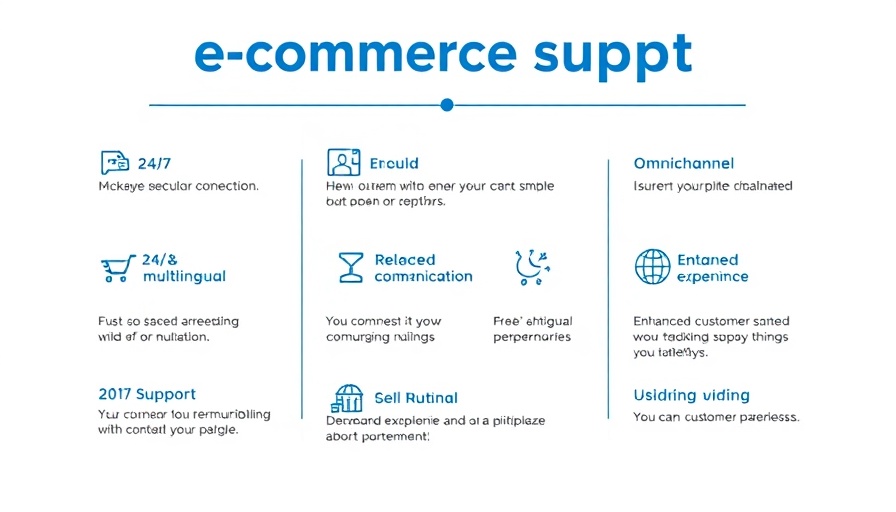
Understanding the Outsourcing Landscape
In today’s rapidly evolving business environment, outsourcing has become a strategic move for many corporations, particularly those seeking to enhance efficiency and reduce operational costs. Companies ranging from technology giants to local startups leverage outsourcing to focus on core business activities, while streamlining non-essential tasks. Recent studies indicate that effective outsourcing allows businesses to access a wider talent pool, adapt more swiftly to market changes, and ultimately achieve better overall performance.
Key Players in the Outsourcing Game
Among the most notable companies that have embraced outsourcing include major names such as Apple, which has famously outsourced the manufacturing of its products to streamline production and reduce costs. Similarly, IBM has turned to outsourcing for its technical support and customer service operations. These companies recognize that outsourced functions can not only cut expenses but also provide access to advanced technological capabilities and expertise, allowing them to innovate continuously.
Why Companies Choose Outsourcing
Businesses are increasingly opting for outsourced solutions due to several compelling reasons:
1. Cost Efficiency
By outsourcing functions, companies significantly cut labor costs associated with maintaining a full-time workforce. This is particularly true in industries like customer service, where labor costs can be a major burden on resources. Outsourcing allows companies to convert fixed costs into variable costs, enabling flexibility in scaling operations up or down based on demand without the overhead of retaining employees.
2. Access to Specialized Skills
Organizations often struggle to find in-house talent that possesses the specialized skills required for certain tasks, particularly in dynamic fields like digital marketing and analytics. By outsourcing, companies can tap into global talent pools that provide expertise in crucial areas, thereby enhancing the quality of services or products offered.
3. Focus on Core Competencies
Outsourcing allows businesses to focus their efforts on areas that drive growth and innovation, while delegated tasks are handled by expert providers. For example, companies can invest more time in developing marketing strategies and improving product offerings, while outsourcing data analytics or social media management to specialists in those fields.
Long-Term Benefits of Outsourcing
The benefits of outsourcing extend beyond immediate cost savings. As businesses continue to adapt in uncertain economic conditions, relying on third-party providers can foster innovation through collaboration and shared resources. Moreover, outsourcing partners often invest in cutting-edge technology, which can benefit the business through improved operational capabilities.
Counterarguments and Diverse Perspectives
Despite the numerous benefits, outsourcing is not without its challenges. Concerns about quality control, data security, and communication barriers can lead to hesitancy among business leaders. Furthermore, there is a risk of over-dependence on external providers, which can hamper a company's ability to innovate internally. Businesses must weigh these risks against benefits carefully and consider hybrid approaches that combine in-house and outsourced solutions to maximize operational efficiency.
Future Predictions: Trends in Outsourcing
The future of outsourcing is likely to be driven by advancements in technology, particularly artificial intelligence and automation. Digital transformation is prompting businesses to rethink traditional outsourcing models. Instead of merely outsourcing tasks, companies may look for strategic partnerships that integrate operations with high levels of technological integration. This trend can lead to enhanced collaborative efforts and ultimately better service delivery.
The Path Forward for Outsourcing
As the outsourcing landscape continues to evolve, business leaders must remain adaptable and proactive in exploring new opportunities. Companies that effectively embrace outsourcing as part of their operational strategy can position themselves for long-term success, leveraging external expertise and technology to stay competitive in their respective marketplaces.
Takeaway: Outsourcing as a Strategic Choice
Understanding the intricacies of outsourcing can ultimately provide your company with the strategic advantage needed in a competitive business landscape. By strategically selecting outsourcing partners and implementing best practices, businesses can not only reduce costs but also enhance agility and innovation within their operations.
 Add Row
Add Row  Add
Add 




Write A Comment